On the fifth day of the fifth month, Japan celebrates Children’s Day with a visual feast of koi nobori (carp streamers) flying in the skies. By tradition, individual families hang the colorful streamers and wind socks on a long pole while larger versions are flown by organizations such as Buddhist temples and Shinto shrines.
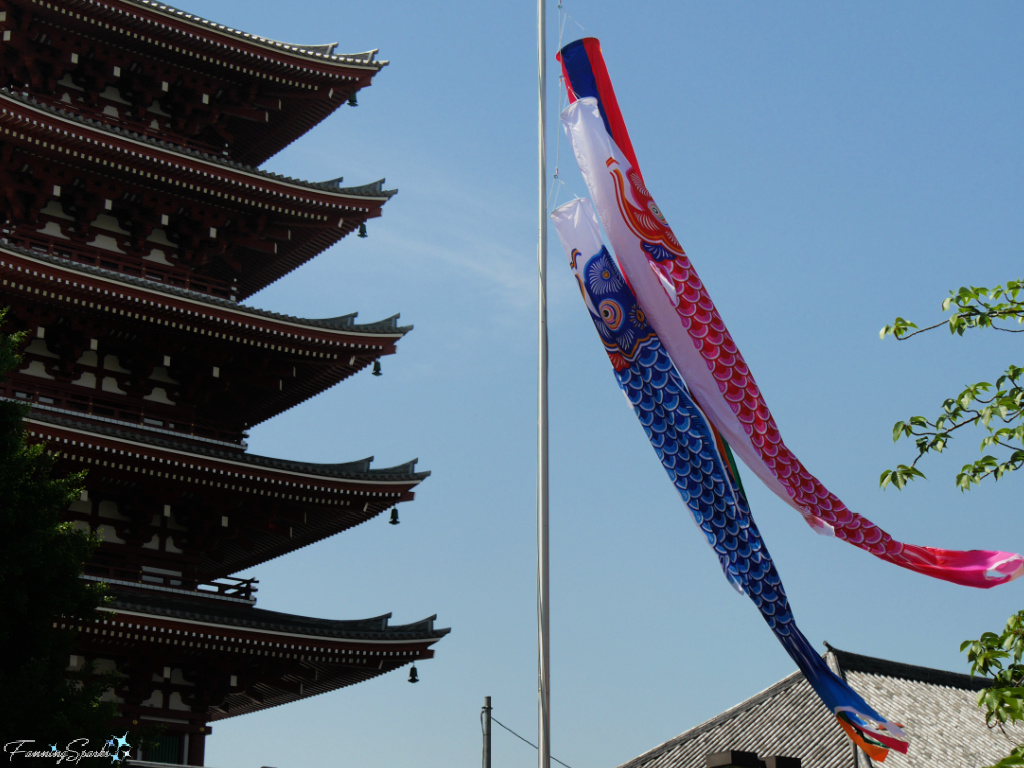
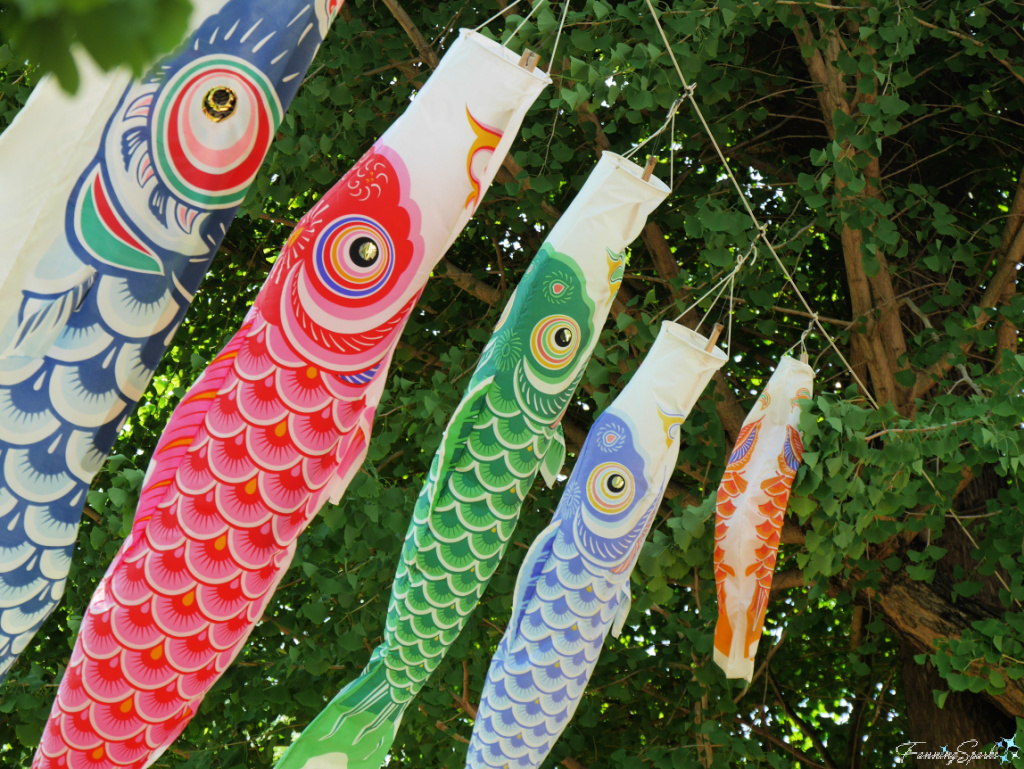 Communities and businesses, such as the Tokyo Skytree, celebrate with hundreds of carp streamers.
Communities and businesses, such as the Tokyo Skytree, celebrate with hundreds of carp streamers.
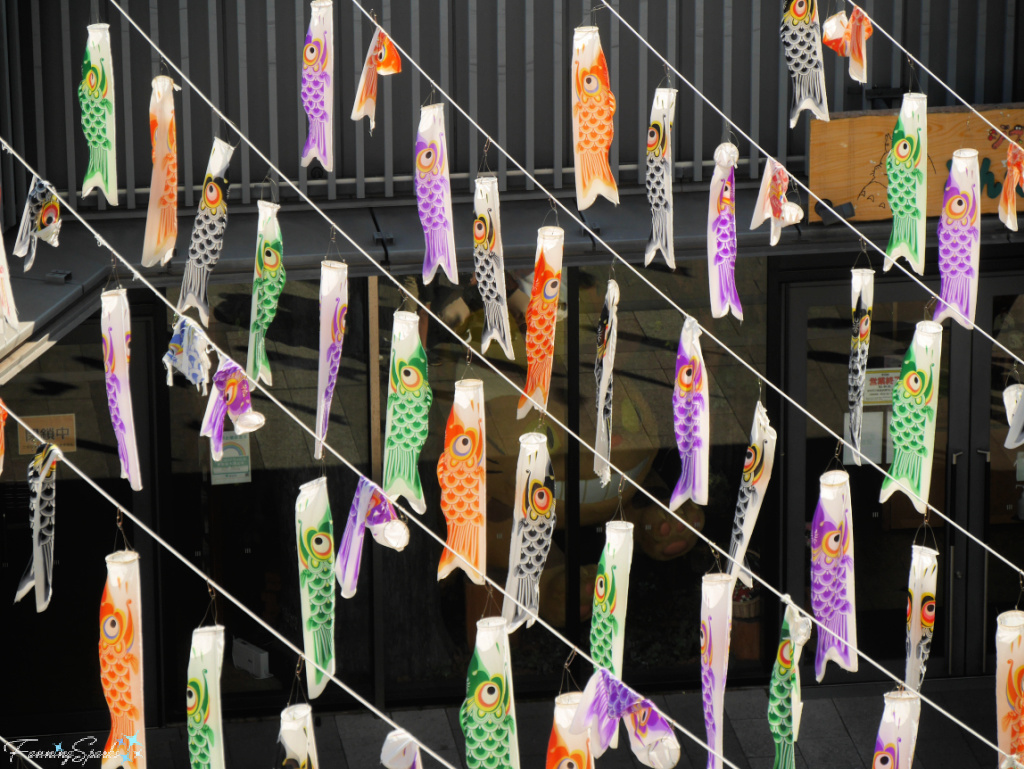
This display, near the Oshinari-hashi Bridge at the Tokyo Skytree, was spectacular. I’m only sorry I didn’t get to see it in the wind.
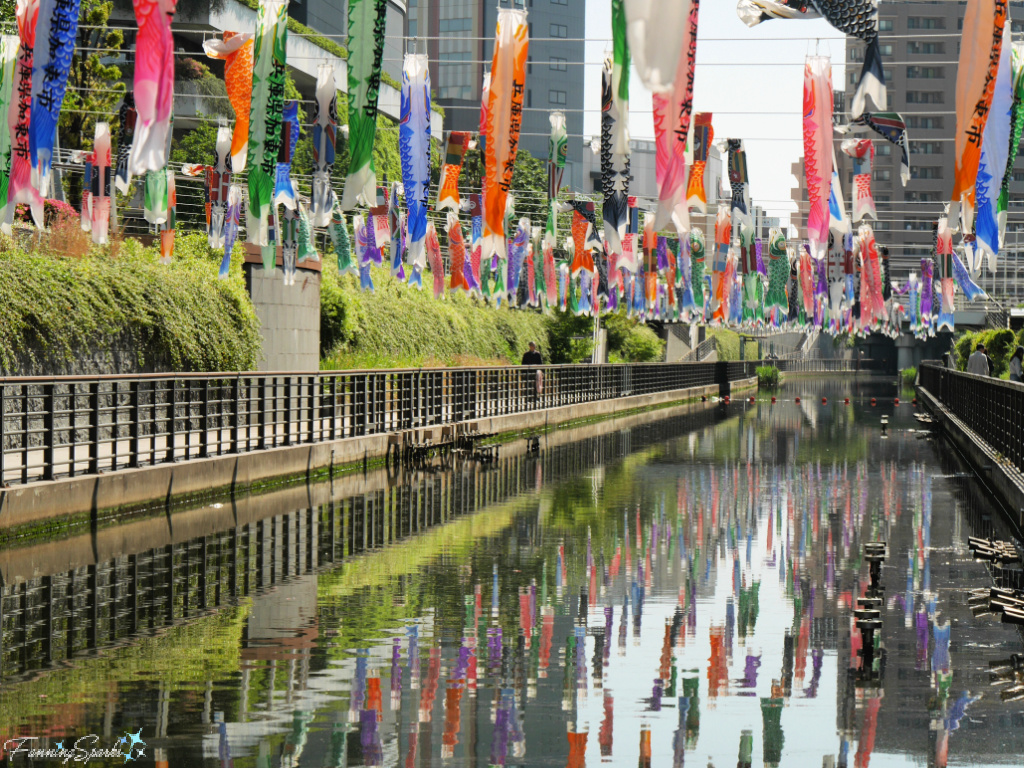 Interestingly, this tradition actually dates back to the Nara period (710-794 CE) when the holiday was exclusively for boys and fluttering carp flags symbolized the strength, courage, perseverance and fortitude of a father and his sons. It’s heartening to learn the tradition has evolved to be more inclusive and now recognizes all members of the family.
Interestingly, this tradition actually dates back to the Nara period (710-794 CE) when the holiday was exclusively for boys and fluttering carp flags symbolized the strength, courage, perseverance and fortitude of a father and his sons. It’s heartening to learn the tradition has evolved to be more inclusive and now recognizes all members of the family.
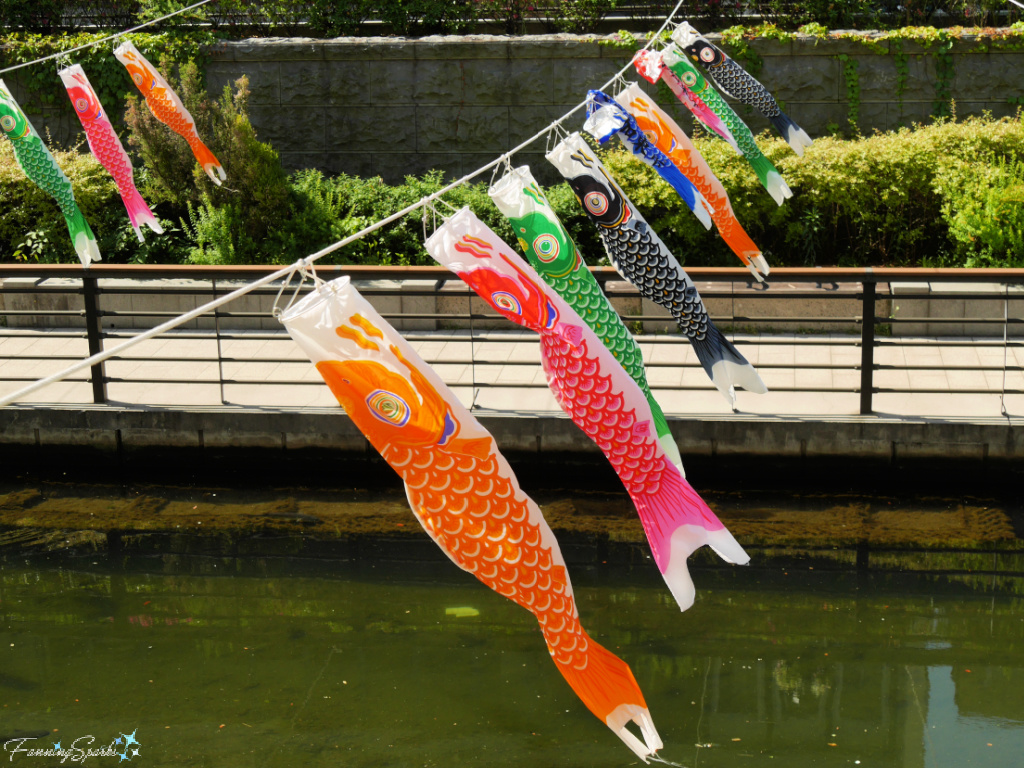 Children’s Day is only one of the four holidays that comprise Golden Week in Japan. Many people take an additional day or two off work to stretch it into a 10-day vacation. I was in Tokyo during part of Golden Week and it was noticeably busier than the previous week especially at train stations and popular venues.
Children’s Day is only one of the four holidays that comprise Golden Week in Japan. Many people take an additional day or two off work to stretch it into a 10-day vacation. I was in Tokyo during part of Golden Week and it was noticeably busier than the previous week especially at train stations and popular venues.
The Ueno Toshogu, a Shinto shrine in Tokyo, is one of those popular destinations. In the below photo, one of the komainu, a mythical doglike beast, guards the Golden Shrine. This magnificent structure dates back to 1627 and enshrines 3 shoguns.
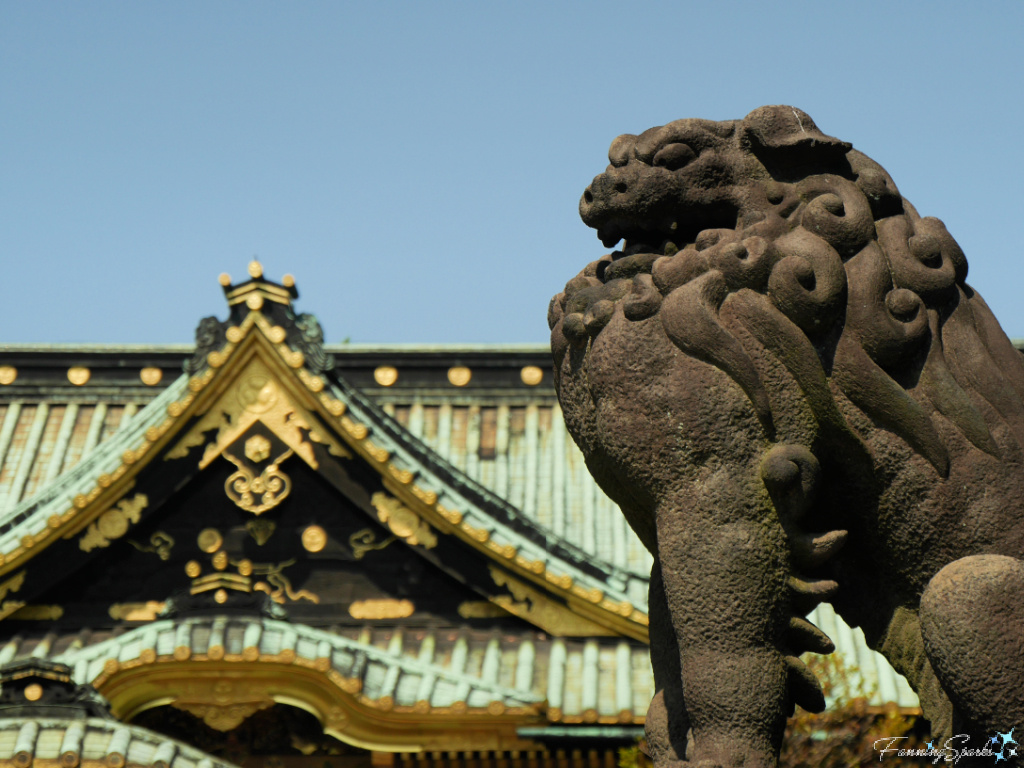
Here’s a closer look at the beautifully gilded Worship Hall.
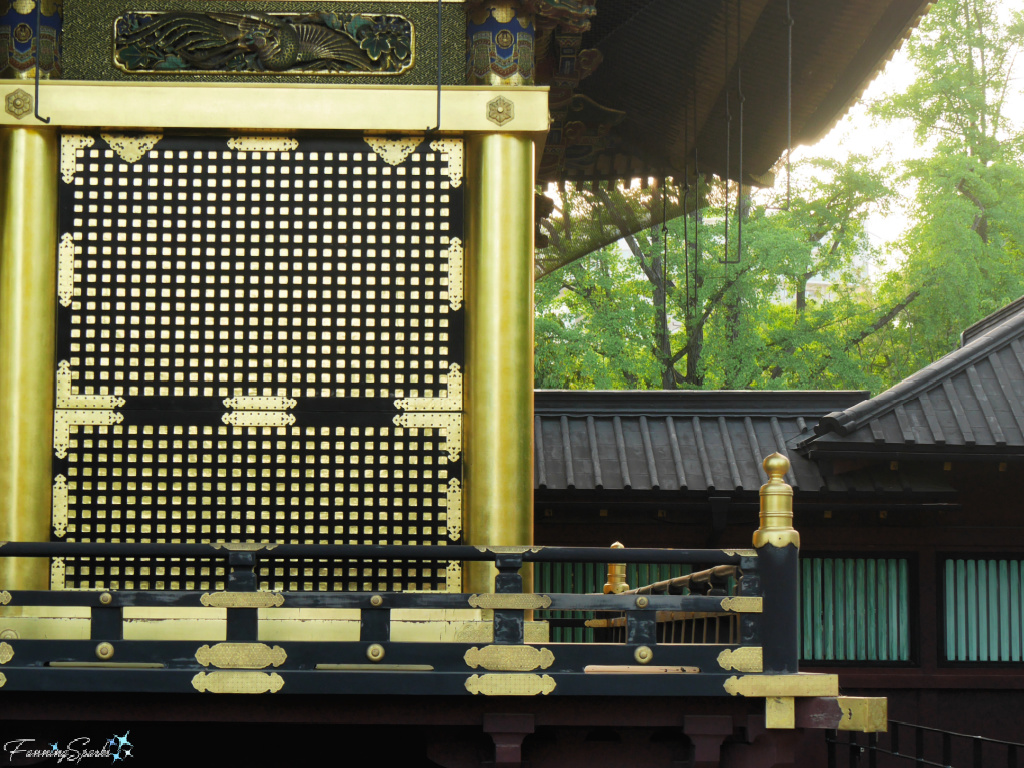 Over 200 majestic stone lanterns were dedicated to the shrine by feudal lords.
Over 200 majestic stone lanterns were dedicated to the shrine by feudal lords.
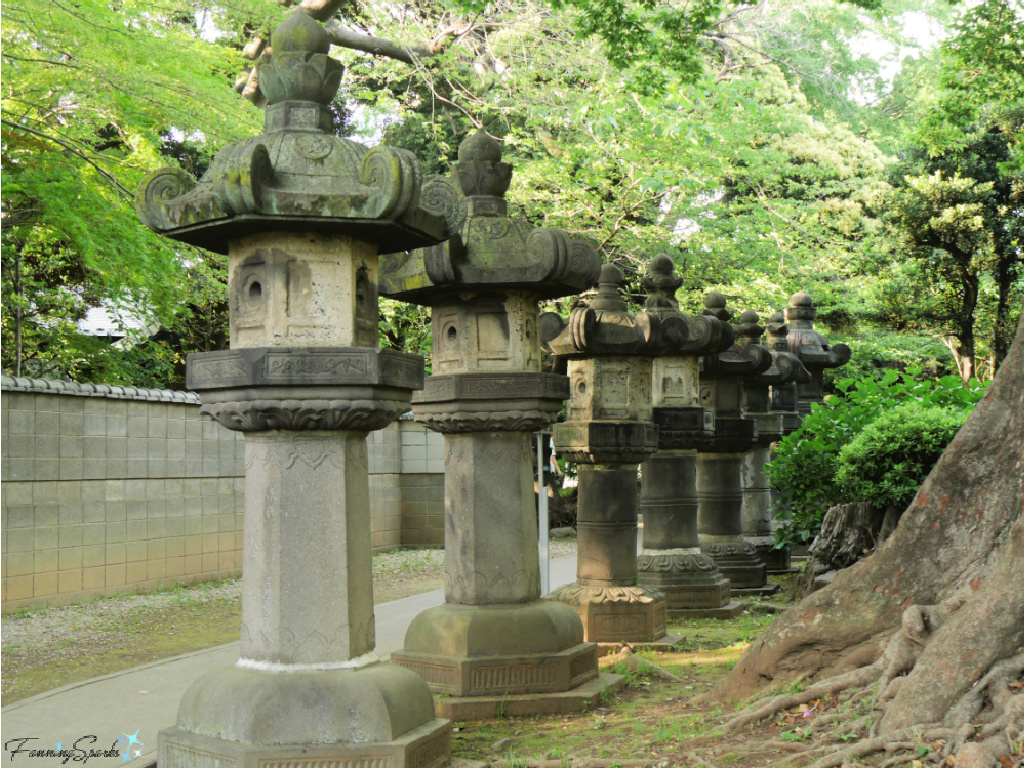 Timing was on my side because the Ueno Toshoga Peony Garden, which is only open for about 3 months of the year, was hosting their spring blossom festival. The beautifully landscaped courtyard garden showcases over 500 peonies. And, yes, those are paper umbrellas protecting the blooms from the sun!
Timing was on my side because the Ueno Toshoga Peony Garden, which is only open for about 3 months of the year, was hosting their spring blossom festival. The beautifully landscaped courtyard garden showcases over 500 peonies. And, yes, those are paper umbrellas protecting the blooms from the sun!
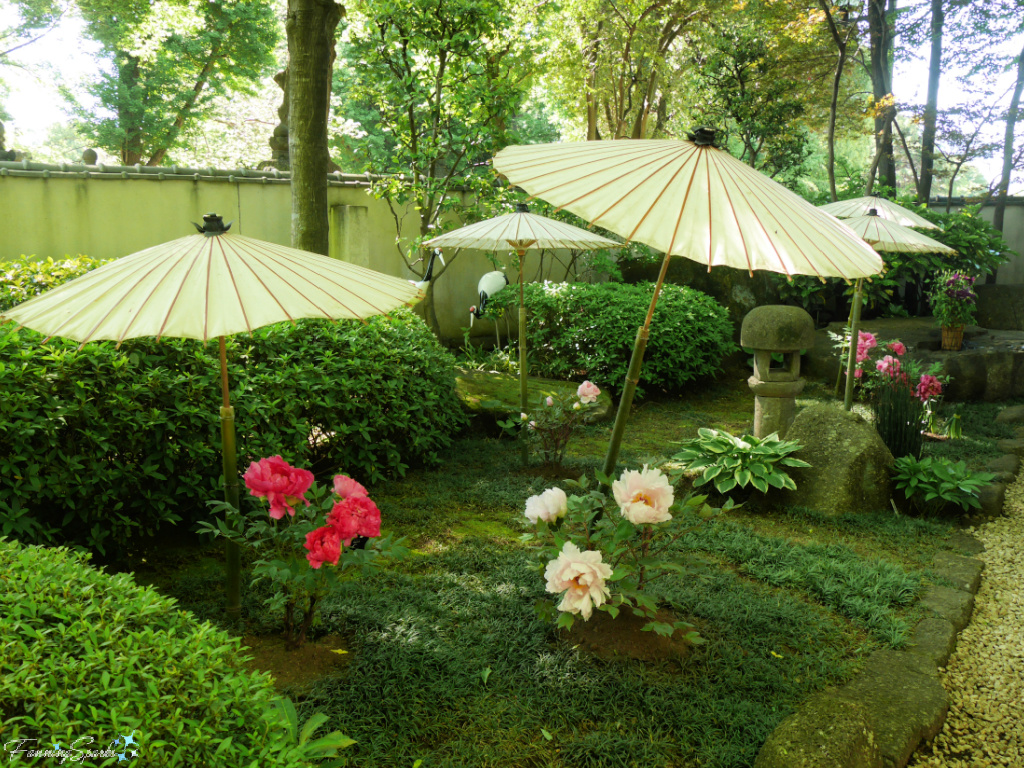
According to the Garden’s brochure, “Since ancient times, it [the peony] has been known as the ‘King of the Hundred Flowers’, … also called the ‘noble and wealthy’ flower and attracts widespread popularity as a blessed flower that brings people wealth, prosperity, fame and fortune.”
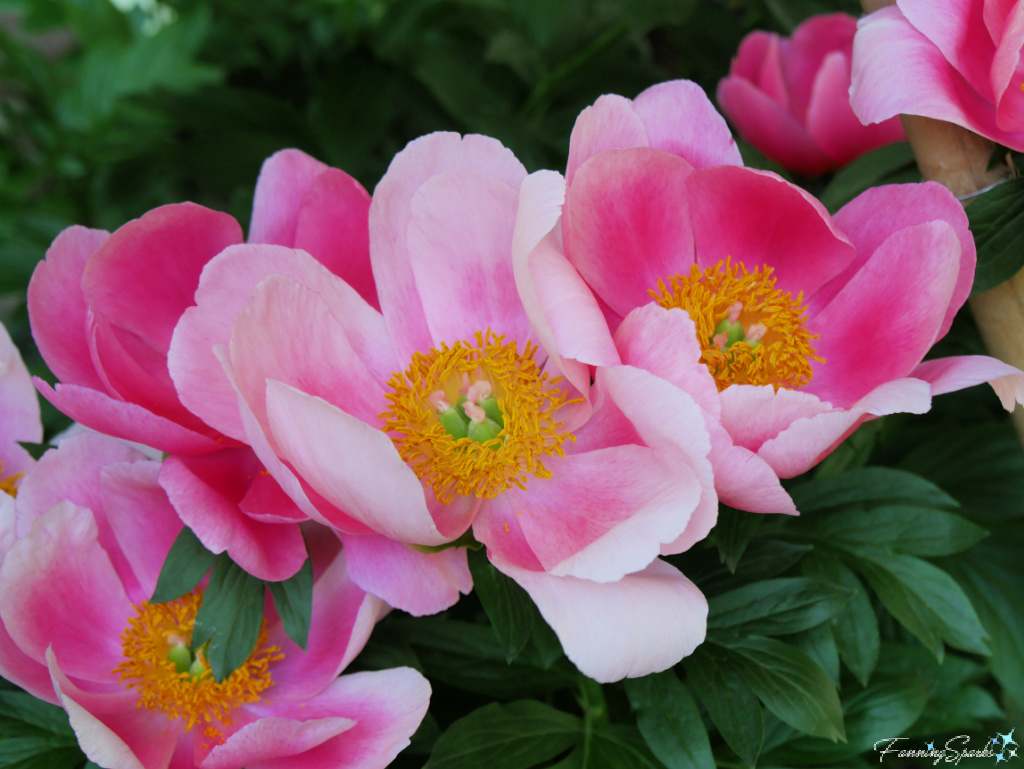
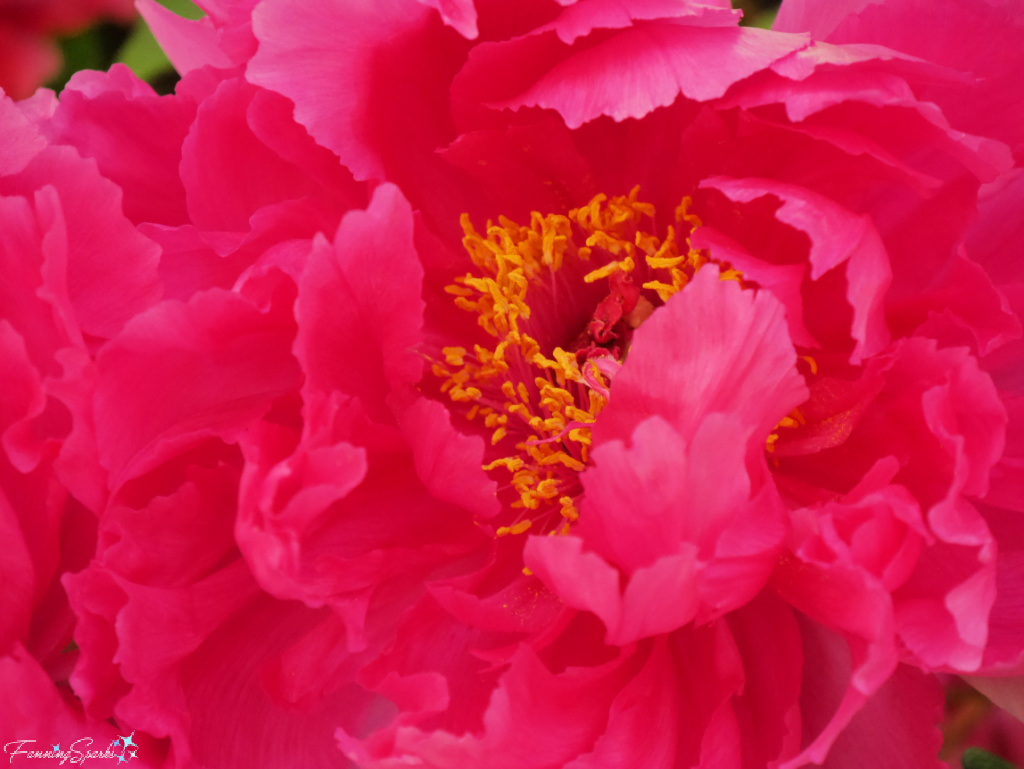
Golden Week is celebrated with numerous special events, activities and promotions. One of the events held at Tokyo’s Ueno Park included a small street fair and vintage flea market. Regular readers know how much I love a good vintage market! Here are a few of the interesting things I spotted there.
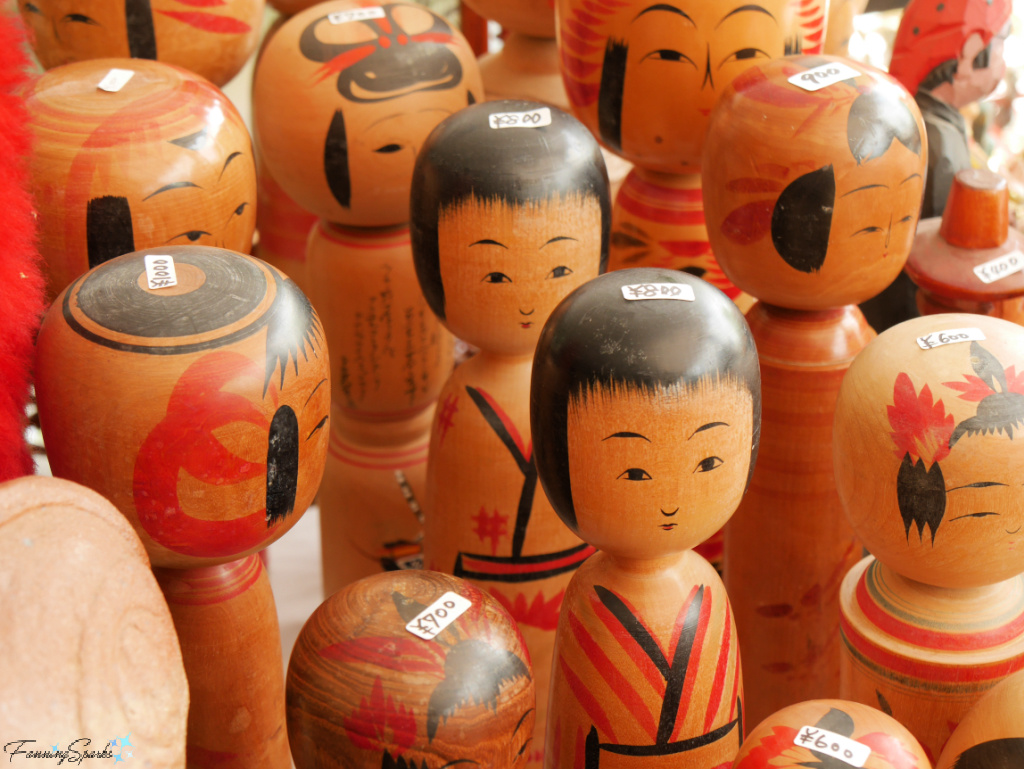
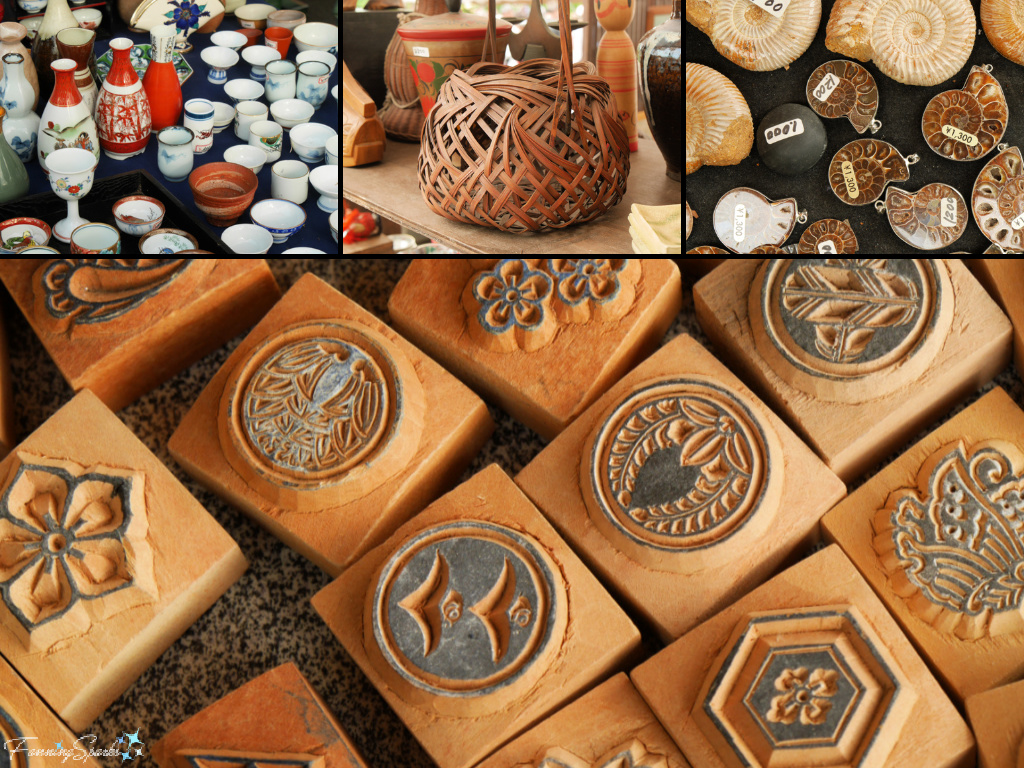
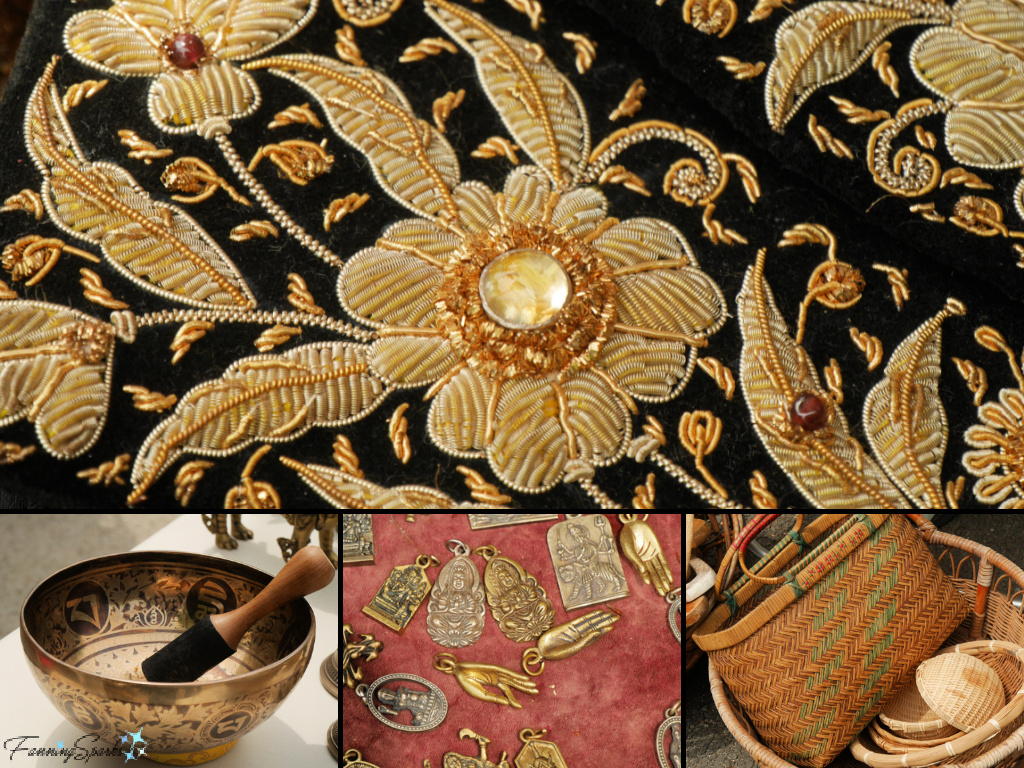 Most exciting was a booth selling vintage kimonos! I’ll share only these photos as a teaser because the fascinating topic of kimonos definitely deserves a post of its own!
Most exciting was a booth selling vintage kimonos! I’ll share only these photos as a teaser because the fascinating topic of kimonos definitely deserves a post of its own!
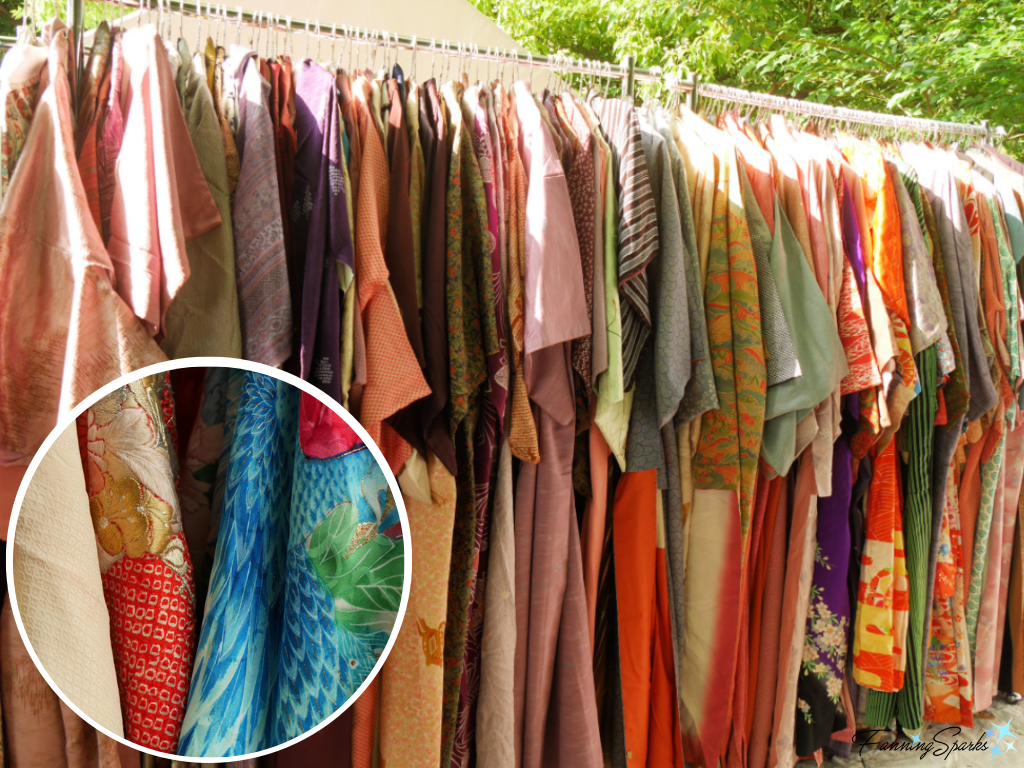
Tokyo wasn’t the only place celebrating Golden Week. The Ishiura Jinja Shrine in the city of Kanazawa held a festival complete with these colorful paper lanterns.
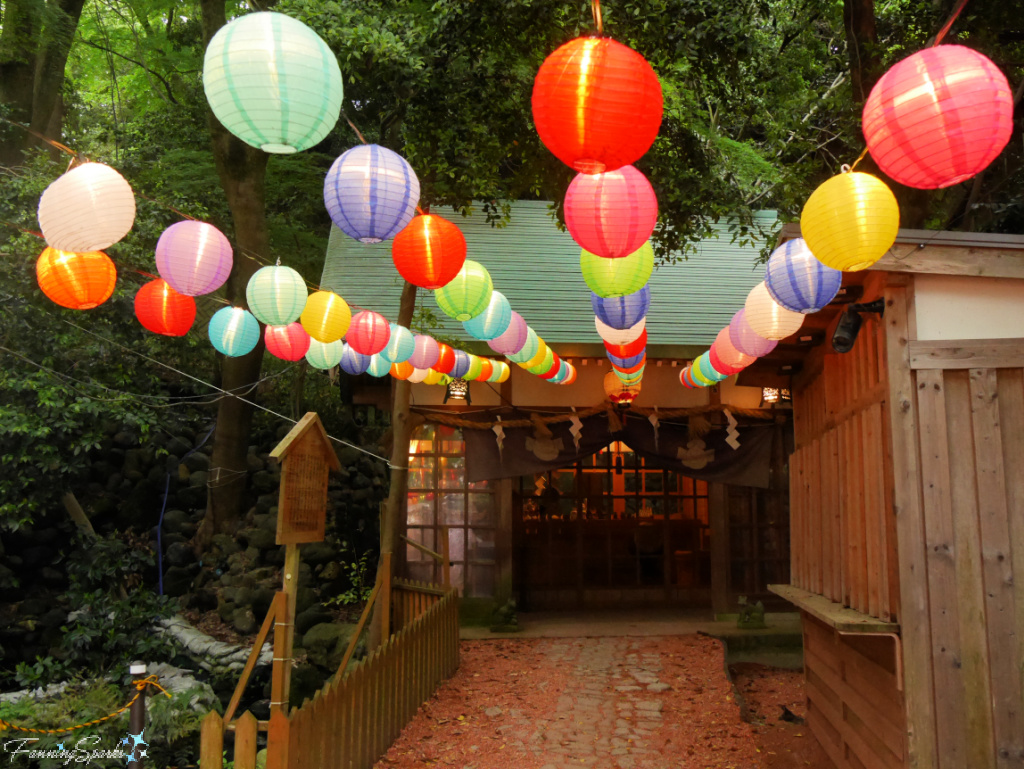 Kanazawa is home to the Kenrokuen Gardens which are considered to be one of the three great gardens of Japan. Kanazawa is also certified as a UNESCO Creative City in the field of crafts and folk art. This designation, which has been awarded to almost 300 cities around the world, is described by UNESCO as a network with a “common objective: placing creativity and cultural industries at the heart of their development plans at the local level and cooperating actively at the international level.” Kanazawa is globally-renowned as a place where crafts flourish and traditional techniques handed down since the Edo period are actively practiced. Great gardens and an active craft scene! …there’s a combination I couldn’t resist!
Kanazawa is home to the Kenrokuen Gardens which are considered to be one of the three great gardens of Japan. Kanazawa is also certified as a UNESCO Creative City in the field of crafts and folk art. This designation, which has been awarded to almost 300 cities around the world, is described by UNESCO as a network with a “common objective: placing creativity and cultural industries at the heart of their development plans at the local level and cooperating actively at the international level.” Kanazawa is globally-renowned as a place where crafts flourish and traditional techniques handed down since the Edo period are actively practiced. Great gardens and an active craft scene! …there’s a combination I couldn’t resist!
Here are a few photos from Kenrokuen Gardens which were indeed great!
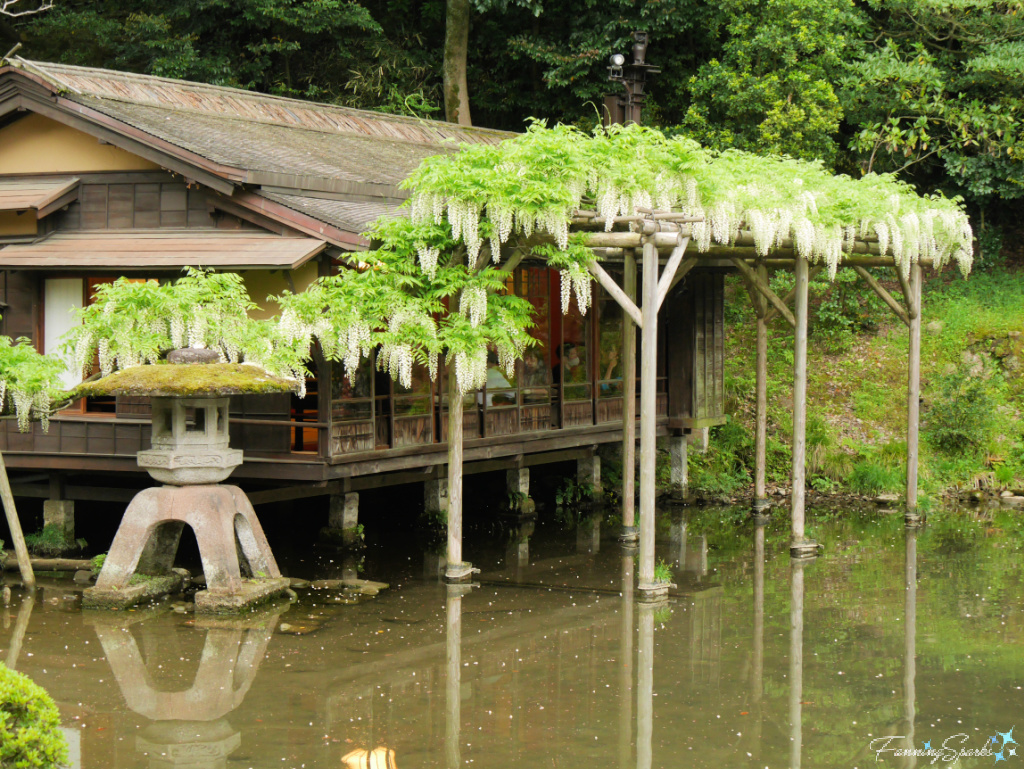
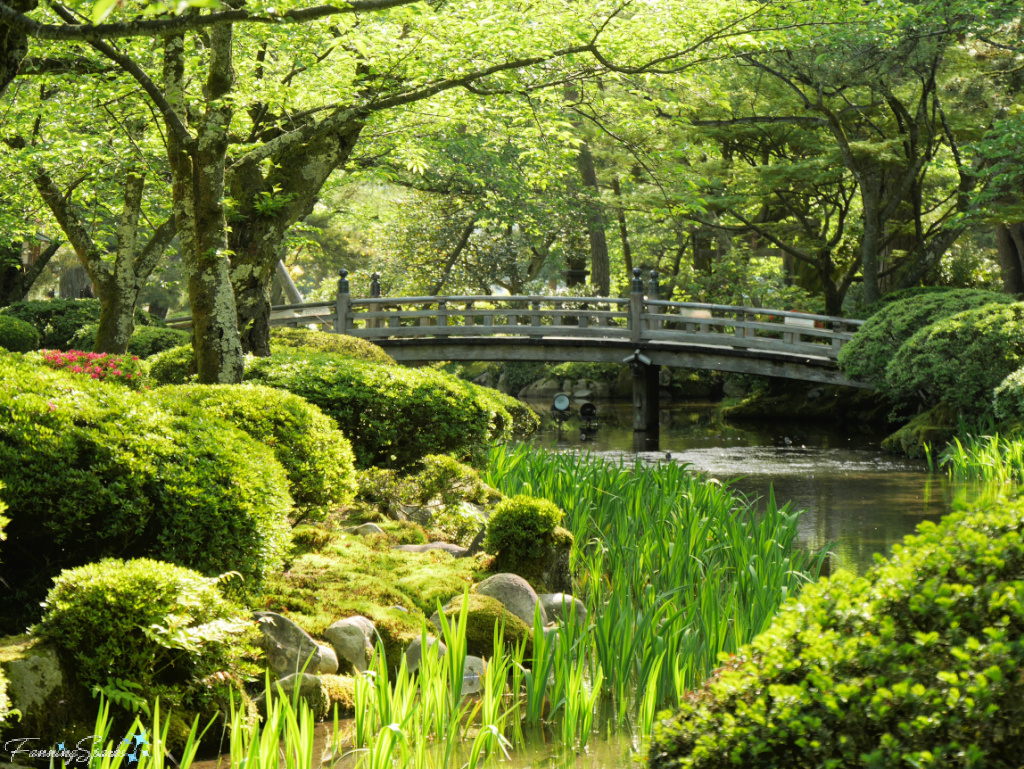
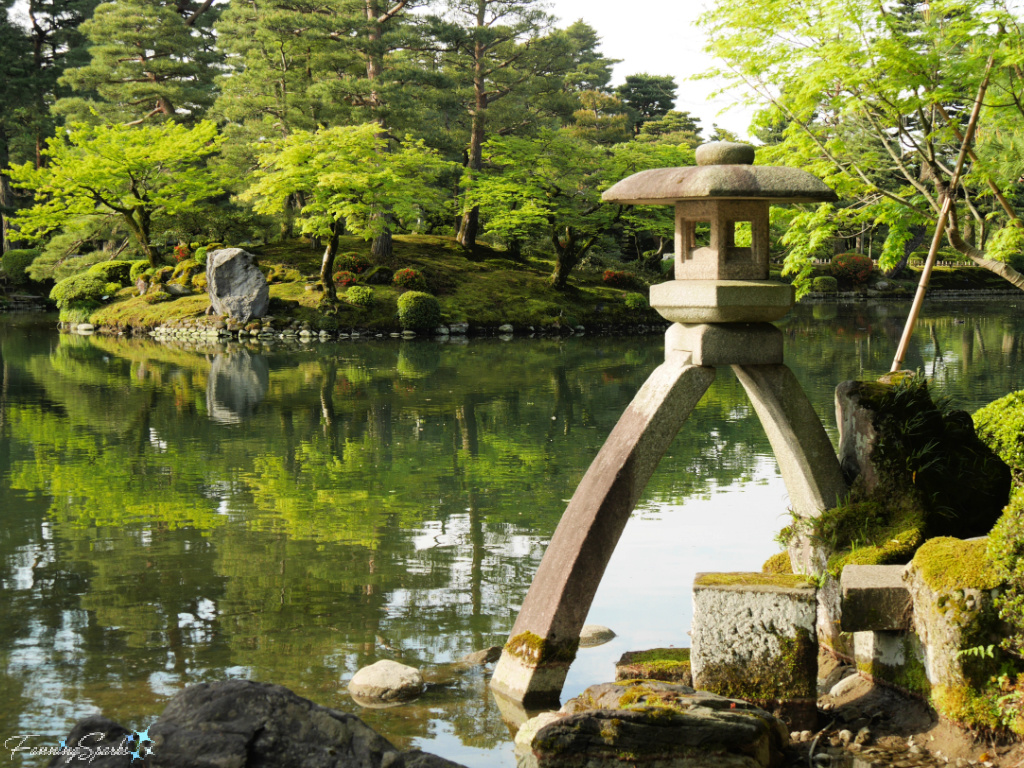
Nearby gardens, at the Oyama Jinja Shrine and the Gyokusen’inmaru Garden (respectively), were also outstanding.
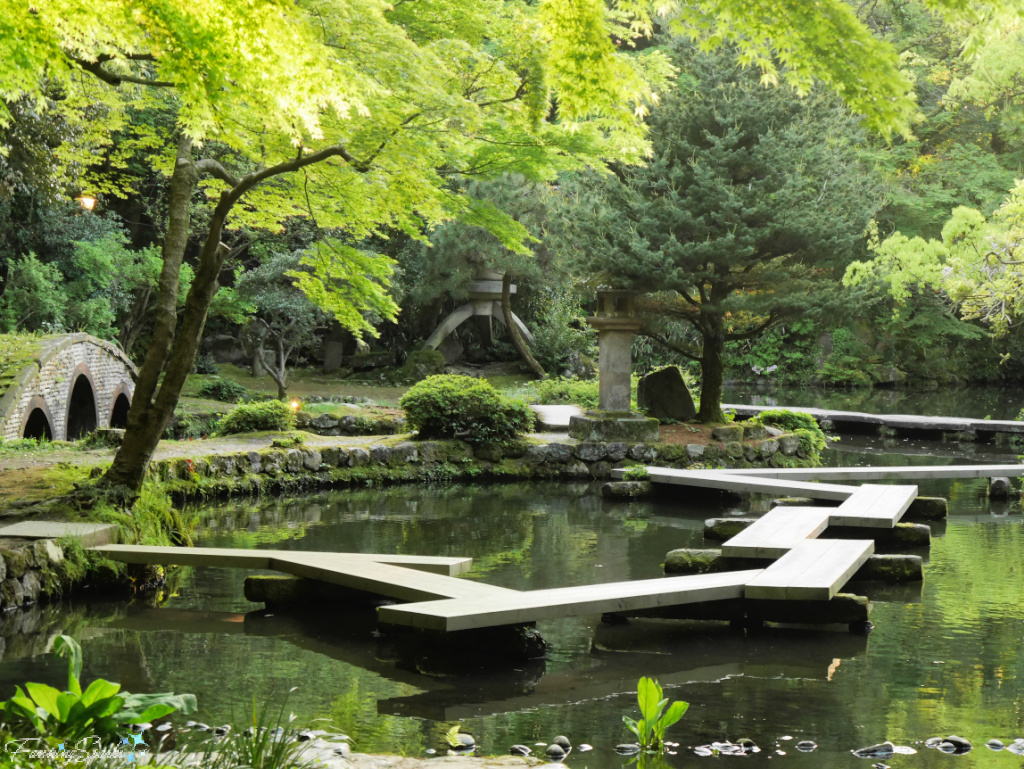
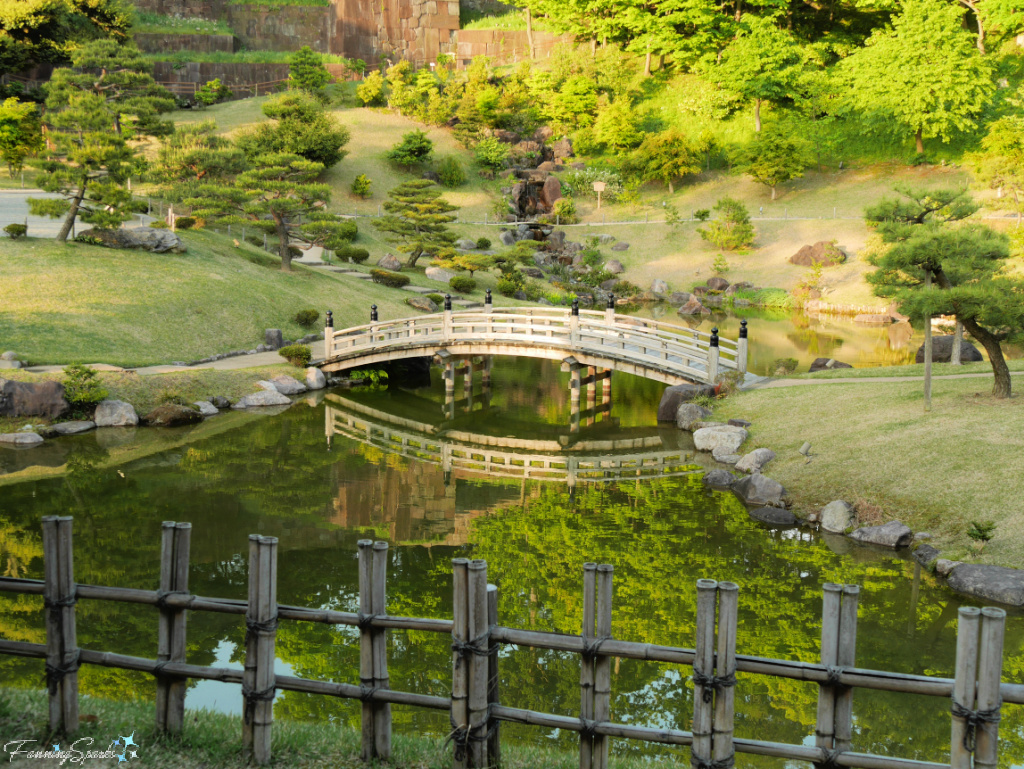
By the way, I admit I’ve been holding back on all things craft-related for future projects and posts. Rest assured, Japan did not disappoint in terms of the active presence of traditional crafts, exhibits and artists. It’s fascinating to me that Japan’s Ministry of Economy, Trade and Industry (METI) officially designates Traditional Craft Products throughout the country.
I had the pleasure of investigating dozens of Japanese crafts including origami, woodblock printing, furoshiki, mizhuhiki, kumiko, temari, and yuzen dyeing, to name a few. Japan has provided an endless source of inspiration! Stay tuned for more on these topics!
This is the fourth, and final, mini-post from my series of postcards from Japan.
. Postcards from Japan #1
. Postcards from Japan #2
. Postcards from Japan #3
. Postcards from Japan #4 (this post).
Enjoy,


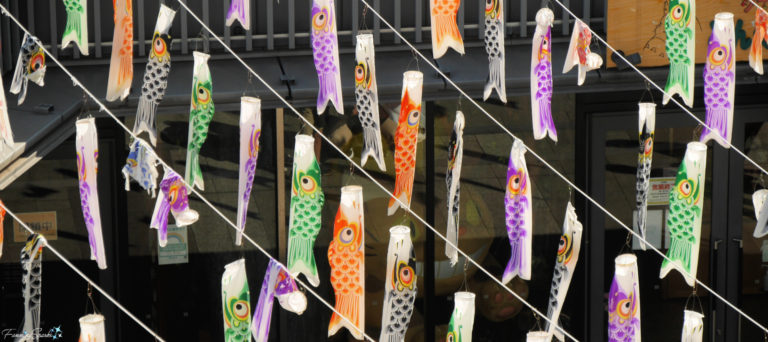


Comments are closed.